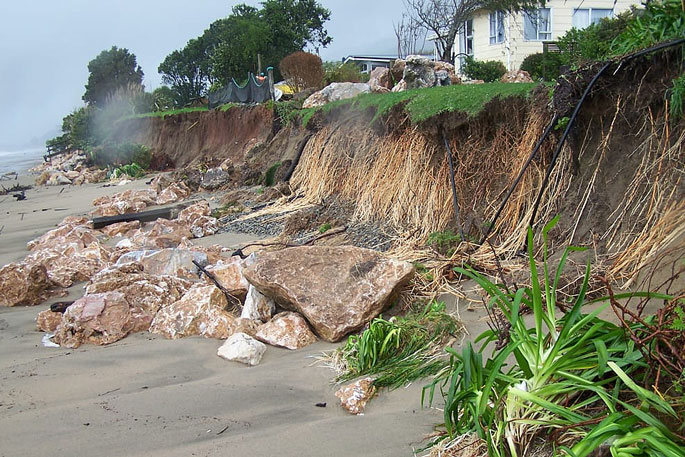Flooding, droughts, and other climate disasters have dominated the agenda at the Insurance Council of New Zealand 2022 Conference.
Keynote speaker Dr Lucy Hone, an expert on resilience, says change is overdue for the insurance industry.
"Please understand that just operating under the old school model of 'this is how we run an insurance company' isn't fit for purpose to prevent the risks that you're now looking at."
Suncorp chief executive Jimmy Higgins says he has watched climate change grow as a threat.
"We can see more recently that the frequency and severity of weather events is worsening," he says.
"Severity in particular is increasing."
Higgins says the impact of climate change isn't always direct.
He worries that the added pressure on New Zealand's infrastructure will continue to present issues.
"It's not necessarily the rain that has fallen, but how that rain and how that water has washed silt and debris into homes.
"The infrastructure that's designed to support water flow, the capacity of stormwater drains for example, how is that maintained?"
Economist Shamubeel Eaqub says climate change has big implications for insurance companies and their customers.
He says fewer people are paying for insurance, due to a combination of expensive premiums and a high cost of living.
"Insurance coverage is falling.
"Yes you might spend 5 percent of your income on insurance, but if the cost has gone up by 15 percent in the last 12 months, what do you cut?"
As sea levels rise, coastal homes could become uninsurable.
Climate change researcher at Victoria University, Judy Lawrence, says the future of seaside villas is grim.
"It's not a great idea to be building on the coast at the moment.
"Or ever again.
"The risks will be borne by somebody at some point, the more vulnerable who can't afford insurance will suffer the most."
Eaqub agrees.
He says the country's approach to housing is short sighted, and that Kiwis should be careful where they build.
"We have to stop building on vulnerable places right now. We're still doing that, it's really quite scary.
"Even with the knowledge that is available to us, we're still building on coasts, we're still building on flood-prone zones, we're still building in storm surge zones. It's extraordinarily irresponsible of us to do this."
It's a game of musical chairs, and Dr Lawrence says the losers will be our most vulnerable.
"People with more money have more choices, and people with fewer means have less ability to move out," she says.
"We saw that in New Orleans, with the big floods: the poor people stayed, and the rich people left."
She says insurers have an opportunity to work with the government to identify the risks of climate change and find ways to prevent them.



0 comments
Leave a Comment
You must be logged in to make a comment.